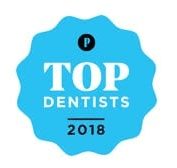A tooth extraction procedure involves the surgical removal of a damaged tooth that cannot be treated with other dental work. Your dentist will provide thorough guidelines to help you heal properly after this surgery.
As the surgical site heals, a blood clot forms naturally. If this clot is dislodged, a painful condition called dry socket may occur, requiring dental intervention to treat. Dr. Drew Shulman, a dentist in Northeast Philadelphia, PA, offers three tips to avoid dry socket after a tooth extraction procedure.

1) Practice Careful Oral Hygiene
One of the primary guidelines your dentist will recommend after a tooth extraction procedure is to keep your mouth clean by continuing good oral hygiene regimens. Ensuring the surgical site remains clean will prevent bacteria from infecting the area as well as other dental concerns.
You should continue to brush your teeth twice a day and floss daily. However, you should be careful when brushing the area near the surgical site so that you do not disturb the blood clot and cause dry socket.
2) Avoid Sucking Movements
The muscle movement and airflow involved when sucking through your mouth can disrupt the blood clot over a tooth extraction site. For this reason, you should avoid using a straw for one week after your oral surgery.
Dentists also recommend ceasing smoking while healing from this procedure too because the inhalation motion creates a similar risk of dry socket. It can be beneficial to reduce smoking before your tooth extraction procedure to make it easier to abstain from smoking during the healing period.
3) Eat Soft Foods
Your mouth may feel sore when you return home after your tooth extraction procedure. Soft-textured foods may be the easiest option for you to eat, but they can also be the ideal food choice if you hope to avoid dry socket.
Hard, sticky, and chewy foods can dislodge a blood clot, leaving you in pain and in need of intervention from your dentist. You can start to eat more solid foods usually the day after your surgery, but you should switch back to soft food if you notice any pain.






